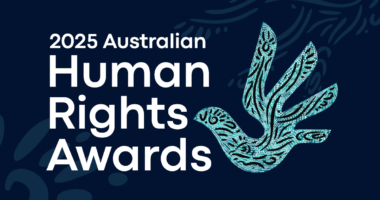Ramadan, the ninth month of the Islamic lunar calendar, is deeply imbued with optimism. It offers Muslims globally a period dedicated to fasting (sawm), prayer, reflection, and fostering a sense of community, joy, and an optimistic outlook on life. This sacred month commemorates the momentous occasion of Prophet Muhammad's initial revelations, serving as a time for spiritual rejuvenation, contemplation, and an optimistic reassessment of one's faith and daily practices.
During Ramadan, the faithful engage in sawm from dawn until sunset, abstaining from food, drink, and other physical needs during the daylight hours as a means of purification and spiritual growth. Prayer increased from the regular five daily prayers, including nightly recitations from the Quran over the month, culminating in the Laylat al-Qadr, or the Night of Destiny, when Muslims believe the Quran's first verses were revealed. The observance of Ramadan also emphasizes the importance of generosity and community through Zakat (almsgiving) and Iftar gatherings, where fasts are broken together in a spirit of fellowship. The requirements of Ramadan are designed not only as acts of devotion but also as opportunities for Muslims to develop more profound empathy for the less fortunate, fostering a community united in faith and optimistic goodwill.
This year, Ramadan occurs under the shadow of the Gaza war and increased violence on the West Bank and by the Huthis in Yemen. The complexities of these conflicts have cast a reflective light on the Ramadan observances, reminding us of the importance of peace, understanding, and the optimistic spirit that Ramadan embodies.
Over the years, I have shared many Iftar dinners, including special events at The Victorian Parliament's Iftar Dinner and the Inaugural Shabbat Iftar Dinner.
So, too, in 2024, I look forward to joining the Islamic community members in breaking fast. Looking ahead with an optimistic heart to this year's Ramadan, I am eager to once again partake in cherished gatherings with the Islamic community, embracing the spirit of Ramadan and the joyous optimism of breaking the fast together. Despite the backdrop of global conflicts and the cancellation of significant events, the essence of Ramadan as a time for reflection, community, and optimism offers a beacon of hope. It encourages us to transcend differences, foster understanding, and work towards a future where peace and mutual respect prevail.
Generally, Ramadan is considered an optimistic time. Why?
Renewal and spiritual growth: During this month, Muslims engage in increased acts of worship, such as fasting, prayer, and charity, which can help to deepen their faith and strengthen their relationship with God. This focus on spiritual growth can create a sense of optimism and hope for the future.
Forgiveness and mercy: Ramadan is also a time for seeking forgiveness and mercy from God. Muslims believe that during this month, the gates of heaven are open, the gates of hell are closed, and it is easier to seek forgiveness and repentance. This emphasis on forgiveness and mercy can create a sense of optimism and relief as Muslims strive to make amends for past mistakes and move forward with a renewed sense of purpose.
Community and solidarity: Ramadan is a time for gathering and solidarity among Muslims. This month, Muslims come together to break their fasts, share meals, and participate in other communal activities. This sense of community and connection can create a sense of optimism and hope as Muslims feel supported and uplifted by their fellow believers.
Gratitude: In his essay, "Ramadan, a month for renewed optimism," Ashfaq Parkar writes, "Optimism in Ramadan comes from actively seeking out things to thank God for, especially among a backdrop of escalating problems facing the world. The channeling of this positively found energy is the celebration of this joyous month."
The promise of reward: Muslims believe many rewards are associated with observing Ramadan in this life and the hereafter. These rewards can include spiritual blessings, increased closeness to God, and the forgiveness of sins. The promise of reward can create a sense of optimism and motivation as Muslims strive to make the most of this special month and earn God's favour.
In summary, Ramadan is optimistic because it allows Muslims to renew their faith, seek forgiveness and mercy, unite in community and solidarity, and earn rewards from God. These factors can create a sense of hope and positivity that carries over into other aspects of life.
Read More: https://www.centreforoptimism.com/blog/ramadan2024
Key Facts:
Ramadan, the ninth month of the Islamic lunar calendar, is a time deeply imbued with optimism. It offers Muslims globally a period dedicated to fasting (sawm), prayer, reflection, and fostering a sense of community, joy, and an optimistic outlook on life.
This year, Ramadan occurs under the shadow of the Gaza war and increased violence on the West Bank and by the Huthis in Yemen. The complexities of these conflicts have cast a reflective light on the Ramadan observances, reminding us of the importance of peace, understanding, and the optimistic spirit that Ramadan embodies.


